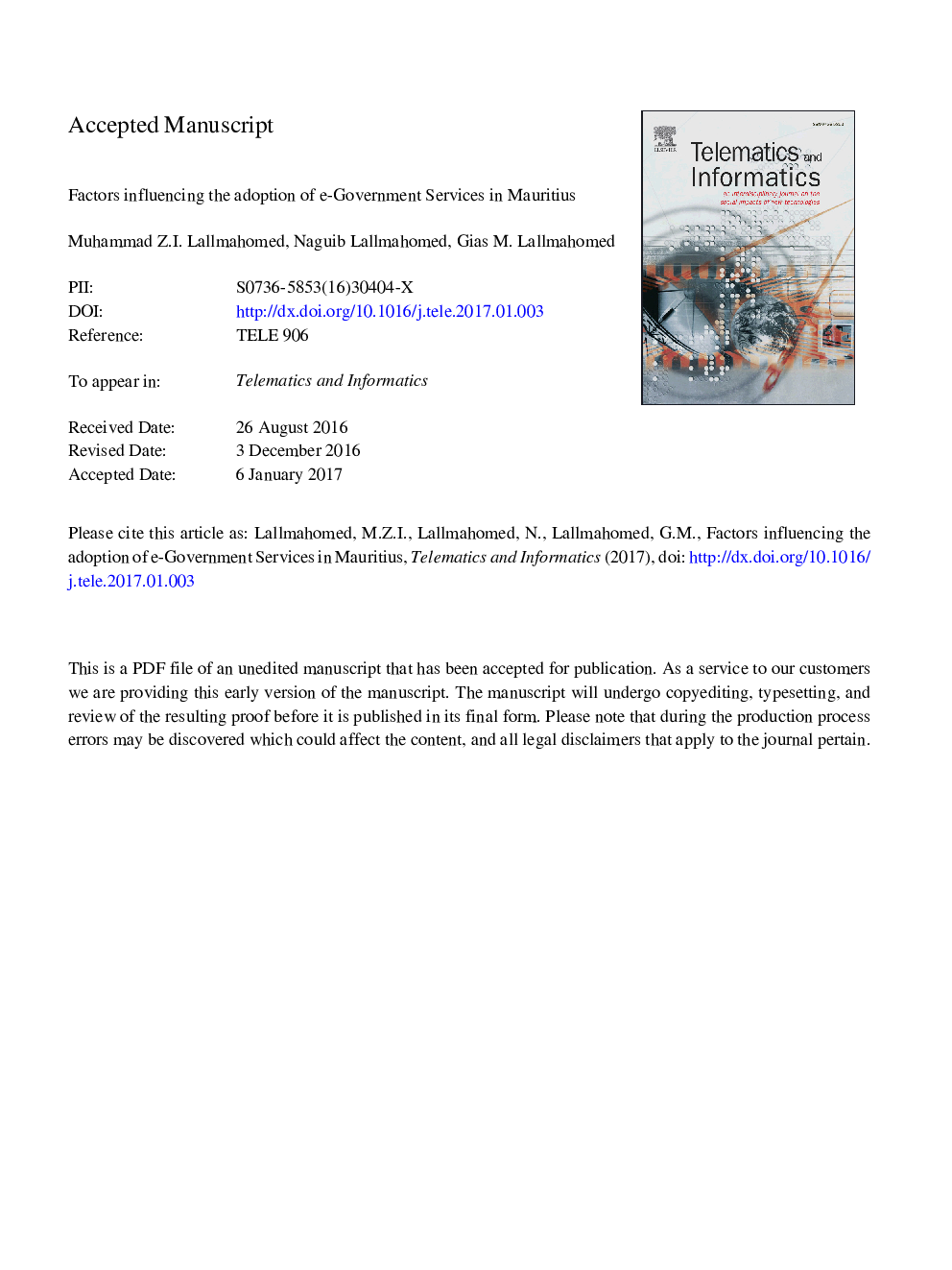| Article ID | Journal | Published Year | Pages | File Type |
|---|---|---|---|---|
| 4957711 | Telematics and Informatics | 2017 | 37 Pages |
Abstract
This research seeks to investigate the antecedents of e-Government adoption in a small island developing state. An extended model comprising of the unified theory of acceptance and use of technology 2 and the e-Government adoption model was employed. Results from a cross-sectional survey of 247 citizens show that performance expectancy, facilitating conditions, perceived value are positively related to behavioural intention. Computer self-efficacy is shown to have a significant negative relationship with behavioural intention and resistance to change. Our results further demonstrate that trustworthiness is inversely related to resistance to change. Small island developing states should engage in proper awareness campaigns of e-Government services offered and focusing their efforts on citizens aged 18-39Â years old to obtain a critical mass of users. Website design and information quality should be improved paying particular attention to security and privacy, thereby increasing trust and reducing resistance to change.
Related Topics
Physical Sciences and Engineering
Computer Science
Computer Networks and Communications
Authors
Muhammad Z.I. Lallmahomed, Naguib Lallmahomed, Gias M. Lallmahomed,
